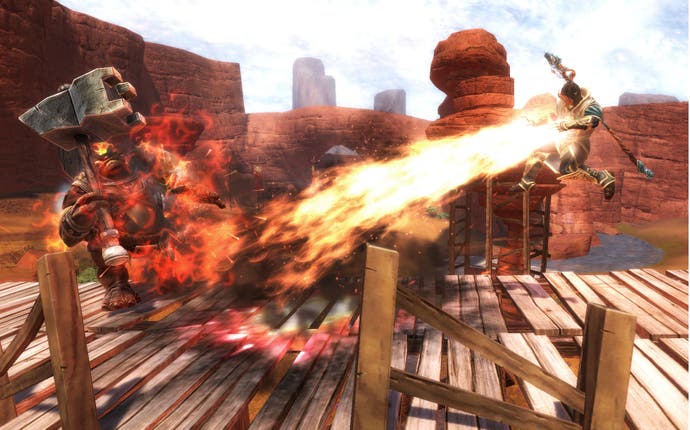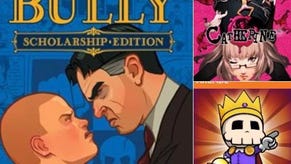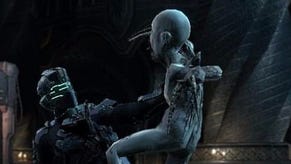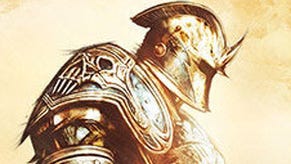Game of the Week: Catherine
You can't buy me love.
You get what you pay for. Or do you? It's getting hard to tell.
For example: when is a free-to-play game not a free-to-play game? When it's Gotham City Impostors, and not actually free to play. You'll fork out a tenner or more for Warner and Monolith's messy but likeable online shooter, but if you want to access all the content and options you've just purchased, you'll either have to dip into some pricy micro-transactions or get ready for a long, hard slog to earn them.
"Gotham City Impostors offers a minimum of substantive content - maps, in particular - and a maximum of unlockables that put unrealistic demands for grinding next to a 'buy now' button," wrote Rich Stanton in our Gotham City Impostors review. "The gadget-enabled shooter at the heart of Gotham City Impostors is fun, smart, and hard to dislike. But it's impossible to recommend."
Boo! But isn't this a double-standard? In the world of single-player games, we've become accustomed to attaching value to the length of the journey; in the multiplayer arena, we want it all now, and will pay to reduce the distance between ourselves and domination. Of course, Warner's mistake is to charge at both ends and thus ensure that neither the shopping nor the levelling seems fun, as they do in Team Fortress 2 and Call of Duty respectively. You've got to pick one philosophy of value and stick to it.
These are confusing times. New business models are proliferating at the same time as gamers are getting ever more gun-shy with their money, and (in the UK, at least) have become accustomed to getting at least 20 per cent knocked off the recommended retail price. And even then, they'll only spend that much on a sure thing. "I'll wait for the inevitable price drop," goes the comments thread mantra - and definition of a self-fulfilling prophecy.

That phrase was liberally applied under the generally positive reviews for this week's meaty role-player Kingdoms of Amalur: Reckoning, and with its forgettable title and lack of pedigree, it's not hard to see why. But it's also a kind of madness. It may lack charisma, but 38 Studios' game isn't remotely short of quantity or quality.
"Kingdoms of Amalur: Reckoning does all the boring, difficult parts of RPG game design very well, and marries them to exceptionally slick combat and a towering stack of stuff to do," I wrote in our review. "This well-oiled machine keeps you motoring through all the sludgy fantasy cliché and through a sluggish first act. Then - just as the world opens out and the story picks up traction - that motor really starts to sing. That's when a solid, workmanlike game becomes one that's virtually impossible to put down."
Are we getting all of it, though? In an attempt to keep us away from temptingly cheaper pre-owned copies - which, lest we forget, don't in any sense pay for games to be made - Reckoning offers some downloadable bonus quests to reward the first-time buyer via online pass.
It's an ugly and flawed solution to a problem created by retailers as much as gamers, and of course the best defence - the one employed by Rockstar, Bethesda, Infinity Ward - is to make a game so compelling that nobody will want to sell it on. Easier said than done, though, and when a talented and ambitious outfit like 38 Studios is condemned to the bargain bin before it has even released its first game, you can't deny that it has to do something to survive.
There's a sense of panic surrounding anything that's not a cast-iron bet. To some extent, publishers can only be as adventurous as their audience. By the same token, confidence breeds confidence, and the overriding confusion caused by added-value stratagems like the online pass or Gotham City Impostors' DLC is what eventually turns to suspicion and anger. There's a nagging sense that, if these games aren't able to stand on their own merits, why should we trust them?
In this atmosphere it's a relief to see a game with the courage of its own convictions. The Darkness 2, also out this week, is a disposable bit of trashy fun without the length or breadth of an Amalur, and arguably will provide many fewer hours of entertainment. But it's got a sense of identity, a unique style and a notable lack of inappropriate brand extensions or nervous nickel-and-diming.
"With so many shooters squeezing plot into the spaces between gunshots, it's great to play a game that makes you walk around and talk to people, that takes its characters and their emotions seriously," said Dan in ourDarkness 2 review. "Even in a frankly ridiculous slapstick game about a gangster with demon tendrils, a little attention to character detail can make all the difference... It may be little more than a gore-soaked custard slice on the great gaming buffet table, but it's a guilty pleasure worth tasting all the same."
And speaking of guilty pleasures with an overdeveloped sense of self...
Catherine
It won't be to as many tastes and it won't sell as many copies, but Atlus' wicked sexual psychodrama and surreal puzzle game has something Kingdoms of Amalur most definitely doesn't. It's cool.
This ineffable commodity - the stock-in-trade of the music business, and an important consideration for movies and TV, too - isn't often considered in the complex equations that determine a game's value, but it should be. Catherine is daring, unique, unrepeatable, weird and humane. All things that make you want to identify with it, to keep it, to display it on your shelf, to tell your friends to give it a try.
Oddly, it achieves much of this by being about normal life. In between its surreal platforming episodes, it's a tale of romantic indecision and early mid-life crisis for a 32-year-old software engineer called Vincent.
"Life presents you with a number of crossroads, Catherine suggests, and it's only in choosing a way forward that you gain an identity. In Vincent's case, it's the difference between being a mere protagonist and a hero," wrote John Teti in our Catherine review.
"The game will draw attention for its wonderful weirdness, as it should, yet that's only half of the story. Catherine plays its eccentricities against its more down-to-earth side, which makes for a richer comic world than you might get from bizarro fare alone. The upshot is an experience that's both fun and provocative - a nightmare worth staying awake for."
And worth paying for. You won't find many people saying they'll wait for Catherine's inevitable price drop. You either want to play it or you don't, and that has a value that shouldn't be underestimated. Game makers, take note - choose a way forward. We need don't need you to be protagonists; we need you to be heroes.









